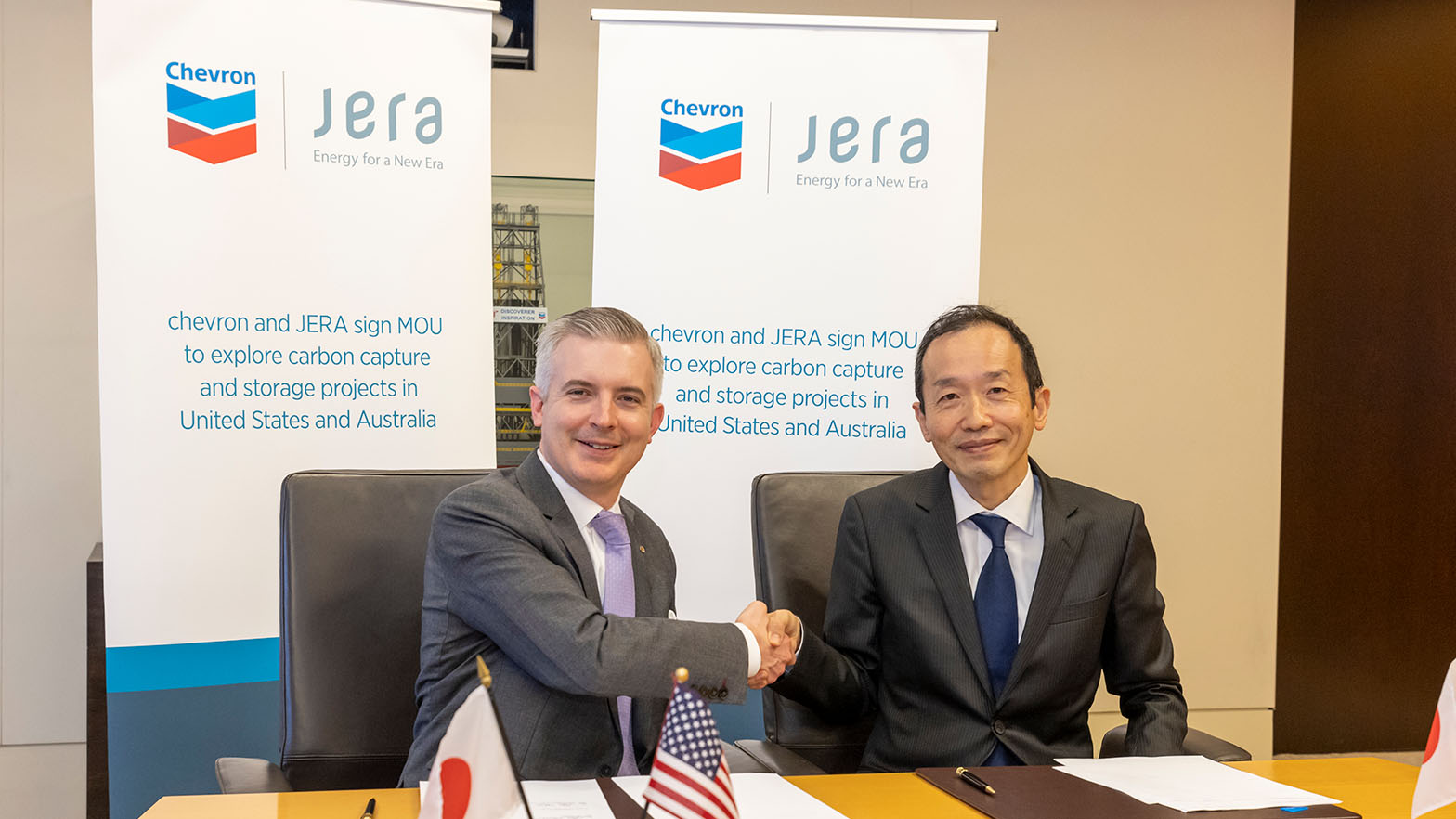Chevron New Energies, a division of Chevron U.S.A. Inc., and JERA have signed a Memorandum of Understanding (MOU) that provides a framework for their collaboration on carbon capture and storage (CCS) projects in the United States and Australia.
In a media release Chevron said this MOU had the potential to expand the significant liquid natural gas (LNG) relationship that Chevron and JERA have and further demonstrates the commitment and dedication of both companies to advancing lower carbon solutions.

This MOU furthers the collaboration between the companies in the lower carbon space, following the November 2022 announcement of their collaboration on the potential co-development of lower carbon fuel in Australia and the study of liquid organic hydrogen carriers (LOHC) in the United States, the San Roman-based supermajor added.
“We have a long-standing LNG relationship with JERA that continues to progress, with the intent of bringing affordable, reliable, and ever-cleaner solutions to our customers,” said Chris Powers, Vice President of Carbon Capture Utilization and Storage at Chevron.
“We have deep experience and capability in subsurface and are actively developing CCS projects around the world. We understand that without long-term relationships like the one we have with JERA, we wouldn’t be able to develop these resources and move at the pace we have been moving to further our energy transition goals.”
Gaku Takagi, Executive Officer, Head of the Resource Procurement & Investment Division of JERA, said, “Under its ‘JERA Zero CO₂ Emissions 2050’ objective, JERA has been working to reduce CO₂ emissions from its domestic and overseas businesses to zero by 2050.
“JERA and Chevron have worked together to bring stable and reliable LNG to our customers over the years, and this CCS collaboration further demonstrates our strong commitment to advance lower carbon solutions.
“Chevron brings significant expertise and experience in the CCS business, so we look forward to working together as we aim to transition to a decarbonized society.”





